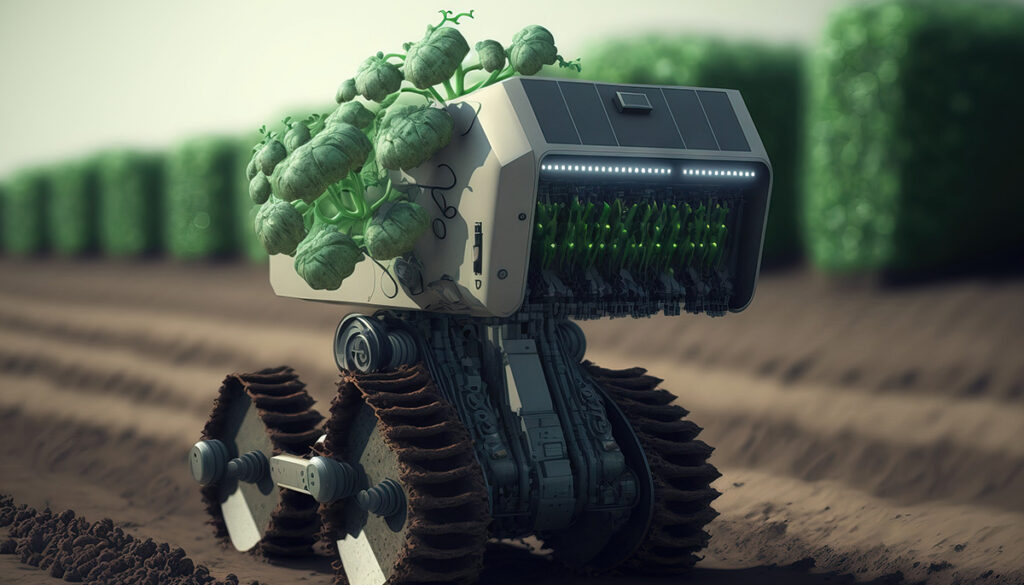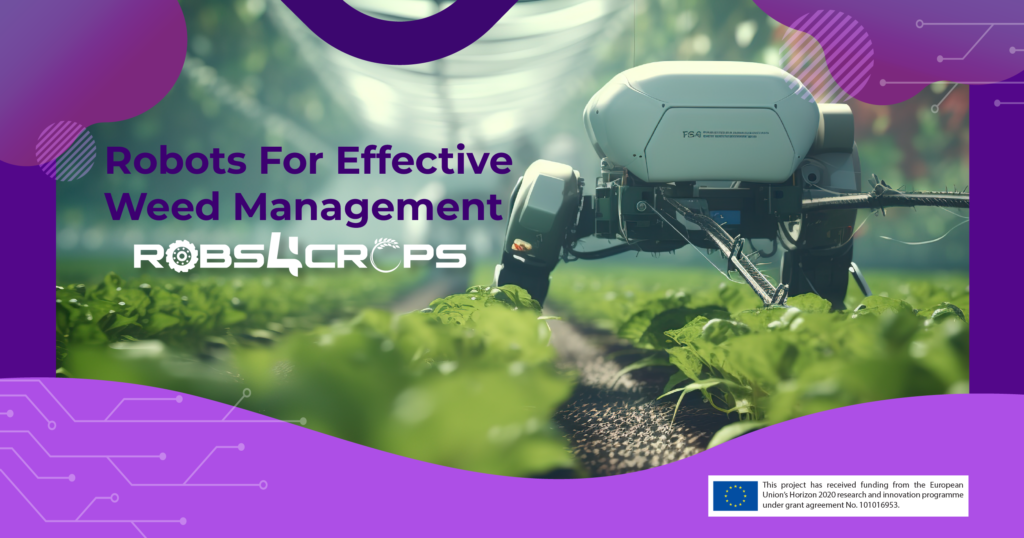The agricultural sector is undergoing a transformative shift in weed control, with robots reshaping traditional methods that were heavily reliant on manual labor. These cutting-edge machines not only enhance accuracy but also contribute to environmental sustainability, revolutionizing the way farmers manage weeds. Embark on exploration within this blog post as we delve into the intricacies of weed control, unraveling the core challenges that persist in agriculture: automated weed detection, precise application of herbicides, robots for mechanical weeding, autonomous tractors, data potential, and drones.
Crop Productivity at Risk: The Challenge of Weeds
Weeds, known for hindering crop productivity by competing for essential resources, have historically been managed through widespread herbicide application. However, this approach has led to environmental concerns and the rise of herbicide-resistant fields. The conventional approach of widespread herbicide application to manage weeds has raised environmental concerns and given rise to the emergence of herbicide-resistant fields, posing significant challenges in agriculture. In response to these issues, precision agriculture emerges as a transformative solution, leveraging data-driven technologies and robotics to address weed challenges more effectively.
Precision in Action: How Robots Redefine Weed Control
By integrating advanced sensors, machine learning, and autonomous capabilities, precision agriculture not only enhances the accuracy of weed detection and treatment but also contributes to sustainable and environmentally conscious farming practices. The shift towards targeted herbicide application by robots ensures a more efficient use of resources, reducing environmental impact and promoting sustainable farming practices. Additionally, the deployment of mechanical weeding robots offers a chemical-free alternative, further aligning weed management with eco-friendly principles.
In the realm of precision agriculture, robots are catalyzing a paradigm shift in weed control by redefining traditional practices. Equipped with advanced sensors and cutting-edge computer vision technologies, these robotic entities autonomously identify and target weeds, reducing reliance on manual labor and significantly enhancing the precision of weed identification and treatment.

Automated detection of weeds
Robots equipped with advanced sensors and computer vision technologies autonomously identify and differentiate between crops and weeds. Using machine learning algorithms, these robots make real-time decisions, reducing the need for manual labor and enhancing weed identification precision.
Accurate application of herbicides
Rather than treating entire fields, robots apply herbicides only where needed, optimizing resource usage. This method not only benefits the environment but also proves economically advantageous for farmers, contributing to a more sustainable farming practice.
Mechanical Weeding Robots
Equipped with robotic arms or mechanical devices, these robots selectively uproot or eliminate weeds, providing a chemical-free alternative and diversifying weed management practices. As new innovations are on the rise, the Horizon 2020 Robs4Crops project is at the forefront with two pilots in France and the Netherlands, both dedicated to advancing mechanical weeding techniques.
Autonomous Tractors
Equipped with advanced GPS and mapping technologies, autonomous tractors navigate fields with precision, applying herbicides strategically. This technology minimizes waste and ensures efficient and targeted weed control.
UAVs for Weed Management
Improving Decision-Making: Harnessing the Power of Data
In precision agriculture, robots play a crucial role in gathering extensive data on crop health, weed density, and environmental conditions. The adoption of a data-driven approach transforms weed management by allowing farmers to proactively implement measures, enhancing efficacy and contributing to the sustainability and resilience of the agricultural ecosystem.
To explore more these advancements, we invite you to peruse the comprehensive insights provided in the corresponding article on Wikifarmer.

